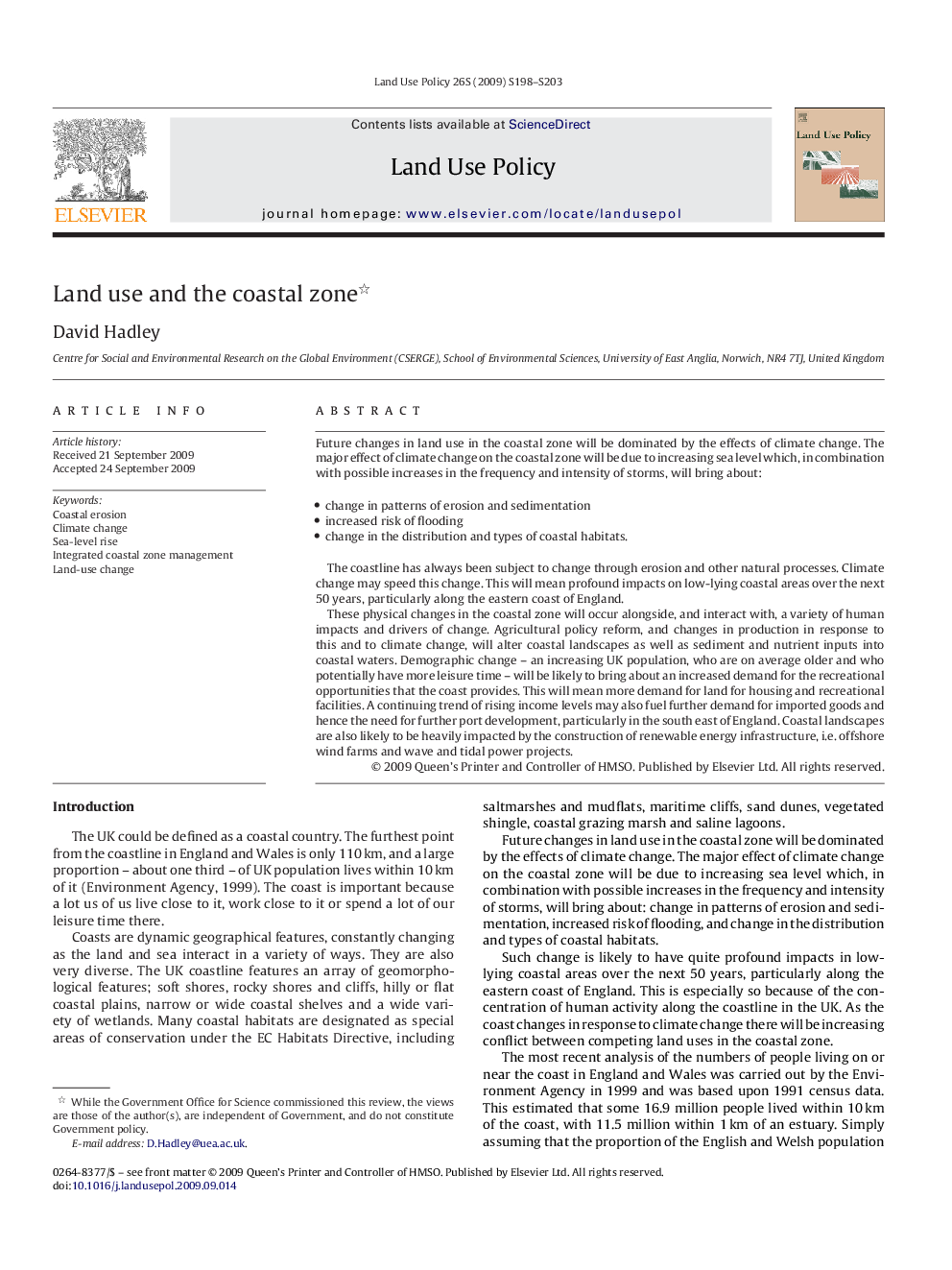| Article ID | Journal | Published Year | Pages | File Type |
|---|---|---|---|---|
| 93777 | Land Use Policy | 2009 | 6 Pages |
Future changes in land use in the coastal zone will be dominated by the effects of climate change. The major effect of climate change on the coastal zone will be due to increasing sea level which, in combination with possible increases in the frequency and intensity of storms, will bring about:•change in patterns of erosion and sedimentation•increased risk of flooding•change in the distribution and types of coastal habitats.The coastline has always been subject to change through erosion and other natural processes. Climate change may speed this change. This will mean profound impacts on low-lying coastal areas over the next 50 years, particularly along the eastern coast of England.These physical changes in the coastal zone will occur alongside, and interact with, a variety of human impacts and drivers of change. Agricultural policy reform, and changes in production in response to this and to climate change, will alter coastal landscapes as well as sediment and nutrient inputs into coastal waters. Demographic change – an increasing UK population, who are on average older and who potentially have more leisure time – will be likely to bring about an increased demand for the recreational opportunities that the coast provides. This will mean more demand for land for housing and recreational facilities. A continuing trend of rising income levels may also fuel further demand for imported goods and hence the need for further port development, particularly in the south east of England. Coastal landscapes are also likely to be heavily impacted by the construction of renewable energy infrastructure, i.e. offshore wind farms and wave and tidal power projects.
